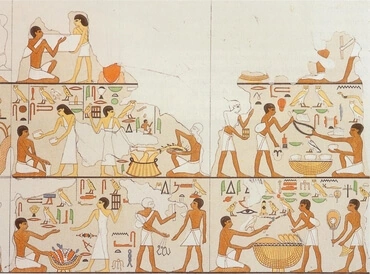1
以色列人出去与非利士人打仗,安营在以便以谢;非利士人安营在亚弗。
2
非利士人向以色列人摆阵。两军交战的时候,以色列人败在非利士人面前;非利士人在战场上杀了他们的军兵约有四千人。
3
百姓回到营里,以色列的长老说:耶和华今日为何使我们败在非利士人面前呢?我们不如将耶和华的约柜从示罗抬到我们这里来,好在我们中间救我们脱离敌人的手。
4
於是百姓打发人到示罗,从那里将坐在二基路伯上万军之耶和华的约柜抬来。以利的两个儿子何弗尼、非尼哈与神的约柜同来。
6
非利士人听见欢呼的声音,就说:在希伯来人营里大声欢呼,是甚麽缘故呢?随後就知道耶和华的约柜到了营中。
7
非利士人就惧怕起来,说:有神到了他们营中;又说:我们有祸了!向来不曾有这样的事。
8
我们有祸了!谁能救我们脱离这些大能之神的手呢?从前在旷野用各样灾殃击打埃及人的,就是这些神。
9
非利士人哪,你们要刚强,要作大丈夫,免得作希伯来人的奴仆,如同他们作你们的奴仆一样。你们要作大丈夫,与他们争战。
10
非利士人和以色列人打仗,以色列人败了,各向各家奔逃,被杀的人甚多,以色列的步兵仆倒了三万。
11
神的约柜被掳去,以利的两个儿子何弗尼、非尼哈也都被杀了。
12
当日,有一个便雅悯人从阵上逃跑,衣服撕裂,头蒙灰尘,来到示罗。
13
到了的时候,以利正在道旁坐在自己的位上观望,为神的约柜心里担忧。那人进城报信,合城的人就都呼喊起来。
14
以利听见呼喊的声音就问说:这喧嚷是甚麽缘故呢?那人急忙来报信给以利。
16
那人对以利说:我是从阵上来的,今日我从阵上逃回。以利说:我儿,事情怎样?
17
报信的回答说:以色列人在非利士人面前逃跑,民中被杀的甚多!你的两个儿子何弗尼、非尼哈也都死了,并且神的约柜被掳去。
18
他一提神的约柜,以利就从他的位上往後跌倒,在门旁折断颈项而死;因为他年纪老迈,身体沉重。以利作以色列的士师四十年。
19
以利的儿妇、非尼哈的妻怀孕将到产期,他听见神的约柜被掳去,公公和丈夫都死了,就猛然疼痛,曲身生产;
20
将要死的时候,旁边站着的妇人们对他说:不要怕!你生了男孩子了。他却不回答,也不放在心上。







